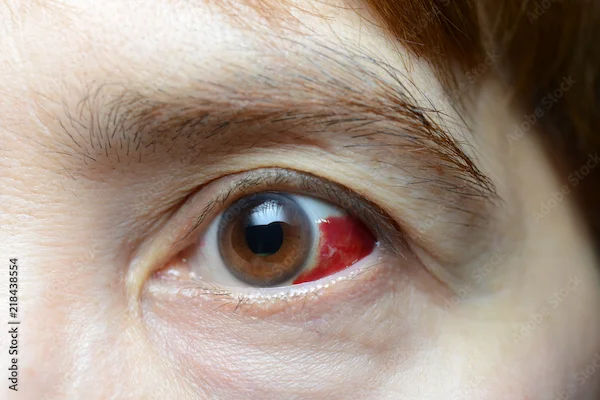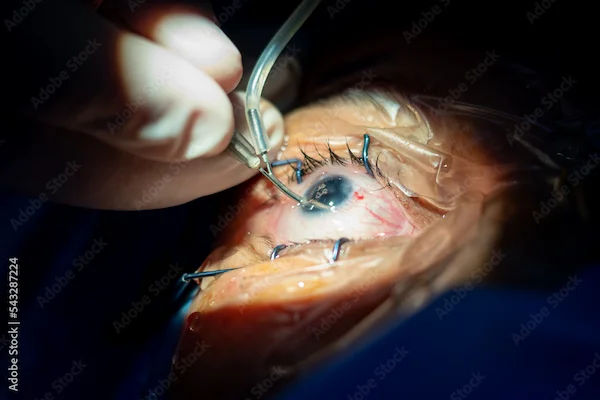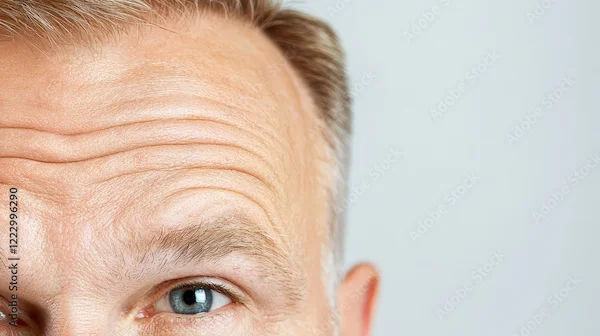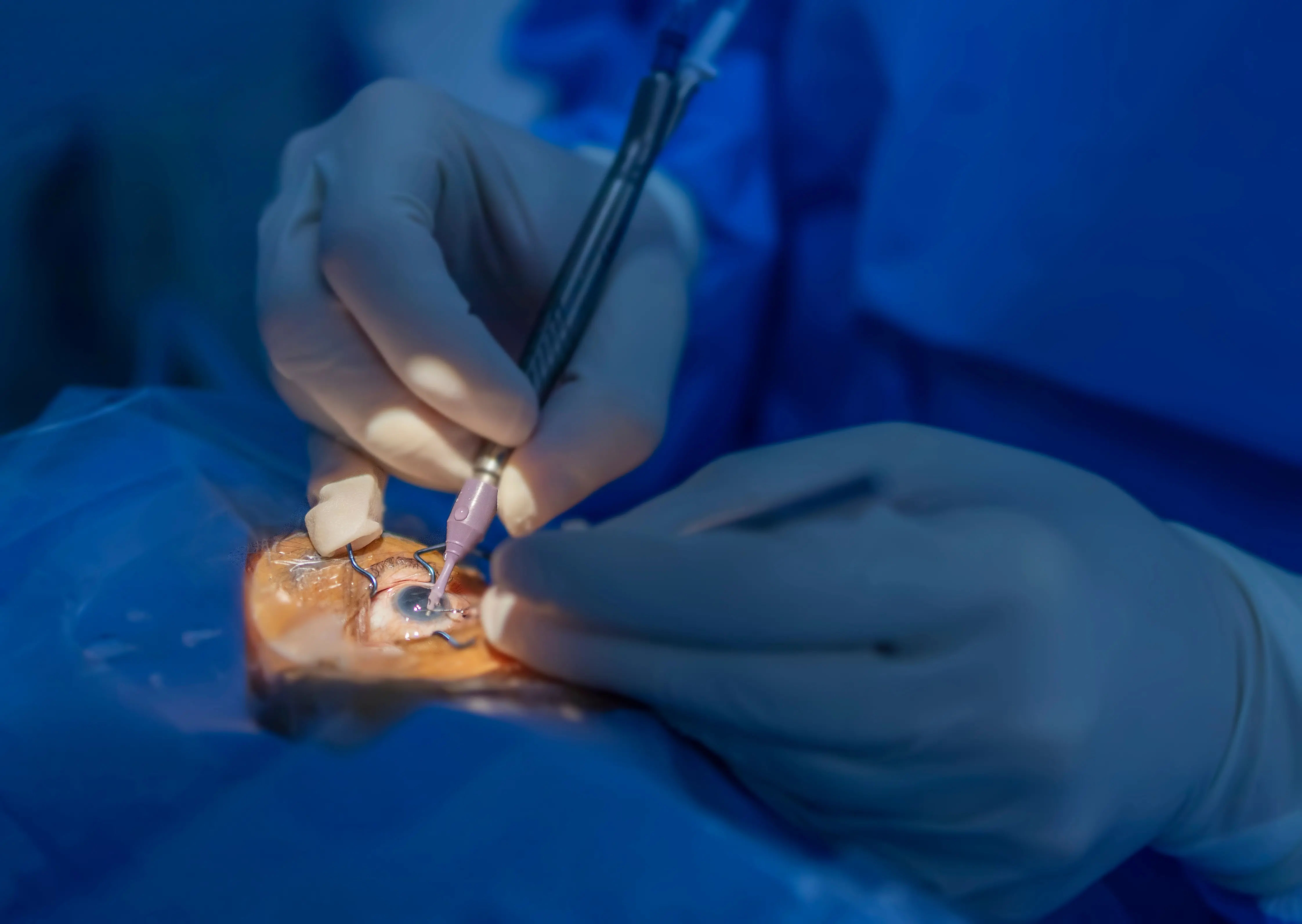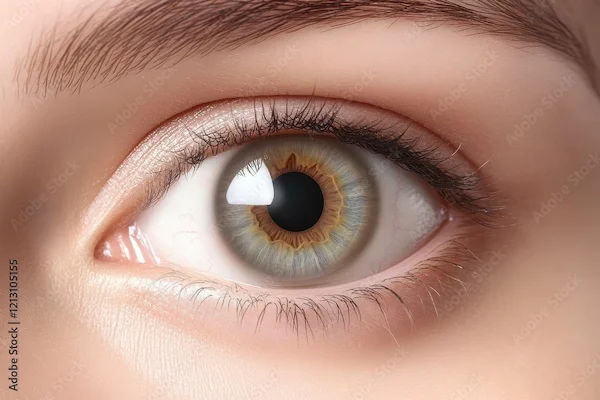Why Do They Put A Contact Lens In After Cataract Surgery?
Find out why a contact lens is sometimes placed after cataract surgery. Learn how it helps restore clear vision, supports eye healing, and enhances visual outcomes for patients.

Written by
Last updated on 13th Jan, 2026

Introduction
If you or a loved one has recently undergone cataract surgery, you might have noticed that the doctor placed a contact lens in your eye afterward. This might seem surprising, especially if you’ve never worn contact lenses before. So, why is this done? Let’s break it down in simple terms.
Understanding Cataract Surgery
First, let’s quickly recap what cataract surgery involves. A cataract is a clouding of the eye’s natural lens, which leads to blurry vision. During surgery, the cloudy lens is removed and replaced with an artificial intraocular lens (IOL) to restore clear vision.
Why a Contact Lens After Surgery?
After cataract surgery, your eye needs time to heal. The contact lens placed on your eye serves several important purposes:
1. Protection and Healing
The eye is delicate after surgery, and the contact lens acts like a protective shield.
It helps prevent irritation from blinking, dust, or accidental rubbing.
Some patients may have stitches (though modern cataract surgery often doesn’t require them), and the lens keeps them from rubbing against the eyelid.
2. Improving Comfort
The surface of the eye (cornea) can feel sensitive after surgery. A soft contact lens provides a smooth surface, reducing discomfort.
It also helps keep the eye moist, preventing dryness.
3. Correcting Temporary Vision Issues
Sometimes, the artificial lens (IOL) takes time to settle into the correct position.
A contact lens can help fine-tune vision temporarily while the eye adjusts.
In some cases, patients may still need slight vision correction (like astigmatism), and the contact lens helps with that.
4. Preventing Infection
The lens acts as a barrier, reducing the risk of bacteria entering the eye.
Your doctor may also prescribe antibiotic or anti-inflammatory eye drops to further protect against infection.
Consult Top Specialists for Personalised Tips
How Long Will You Wear the Contact Lens?
Most patients wear the contact lens for a short period, usually a few days to a week. Your doctor will remove it during a follow-up visit once the eye has healed sufficiently.
Tips for Post-Surgery Care
While the contact lens helps, you should also take extra care of your eyes after cataract surgery:
Avoid rubbing your eyes: This can dislodge the lens or cause irritation.
Use prescribed eye drops: Follow your doctor’s instructions carefully.
Wear sunglasses: Protect your eyes from bright light and dust.
Avoid strenuous activities: Heavy lifting or bending over can increase eye pressure.
Keep water out of your eyes: Avoid swimming or splashing water directly into your eyes while healing.
When to See a Doctor?
While complications after cataract surgery are rare, contact your doctor if you experience:
Severe pain or redness
Sudden vision loss
Flashing lights or floaters
Excessive discharge
Conclusion
The contact lens after cataract surgery is a simple but effective way to protect your eye, improve comfort, and ensure smooth healing. By following your doctor’s advice and taking good care of your eyes, you’ll be on your way to clearer vision in no time!
Consult Top Eye Surgeon
Consult Top Specialists for Personalised Tips

Dr. Zennat Tajmin Shah
Ophthalmologist
24 Years • MBBS,DNB (Ophthalmology)
Kolkata
Titanium Eye Care, Kolkata

Dr Ranojit Basu
Ophthalmologist
24 Years • MBBS, DNB Ophthalmology, Diploma in Ophthalmic Medicine and. Surgery
Kolkata
Titanium Eye Care, Kolkata

Dr. Mridula V Amarnath
Ophthalmologist
12 Years • MBBS,MS (Opthalomology)
Bengaluru
Apollo Medical Center, Marathahalli, Bengaluru

Dr. Shivani Grover
Ophthalmologist
9 Years • MS (Ophthalmology), Fellowship Cataract, Squint & Paediatric Ophthalmology
Lucknow
Apollomedics Super Speciality Hospital, Lucknow

Dr. Siddharth Malaiya
Ophthalmologist
10 Years • MS Opthal,Cornea Transplant
Bhopal
Apollo Sage Hospitals, Bhopal
(25+ Patients)
Consult Top Eye Surgeon

Dr. Zennat Tajmin Shah
Ophthalmologist
24 Years • MBBS,DNB (Ophthalmology)
Kolkata
Titanium Eye Care, Kolkata

Dr Ranojit Basu
Ophthalmologist
24 Years • MBBS, DNB Ophthalmology, Diploma in Ophthalmic Medicine and. Surgery
Kolkata
Titanium Eye Care, Kolkata

Dr. Mridula V Amarnath
Ophthalmologist
12 Years • MBBS,MS (Opthalomology)
Bengaluru
Apollo Medical Center, Marathahalli, Bengaluru

Dr. Shivani Grover
Ophthalmologist
9 Years • MS (Ophthalmology), Fellowship Cataract, Squint & Paediatric Ophthalmology
Lucknow
Apollomedics Super Speciality Hospital, Lucknow

Dr. Siddharth Malaiya
Ophthalmologist
10 Years • MS Opthal,Cornea Transplant
Bhopal
Apollo Sage Hospitals, Bhopal
(25+ Patients)
